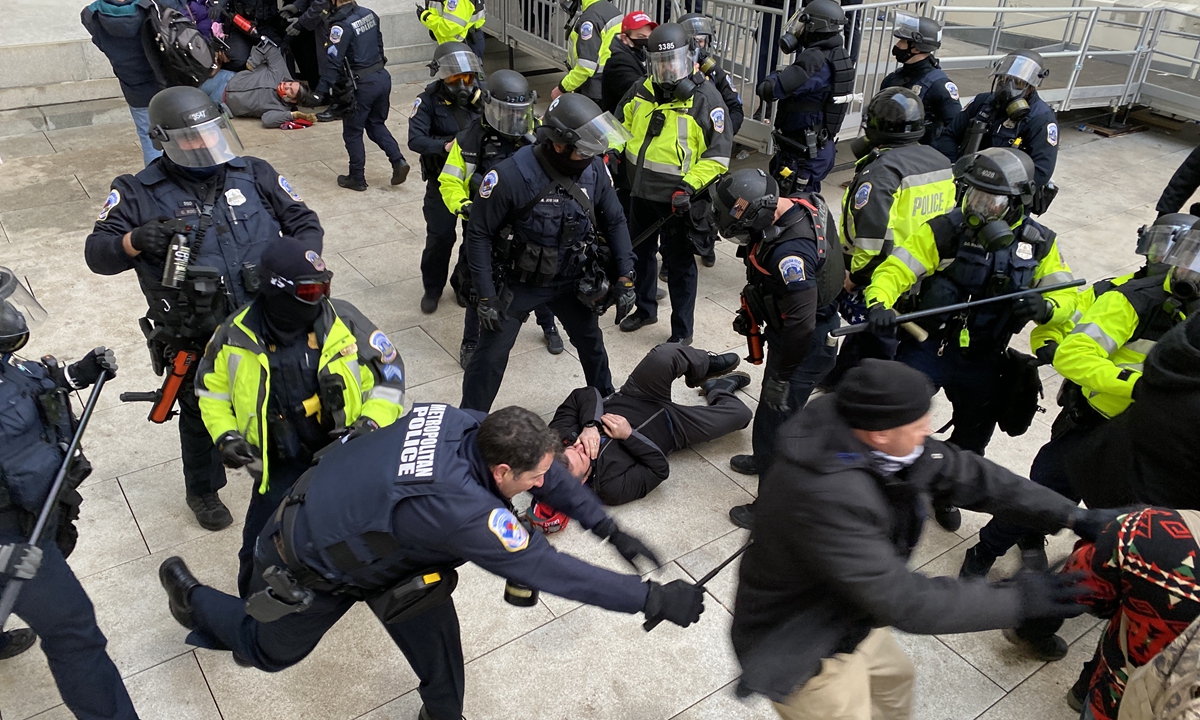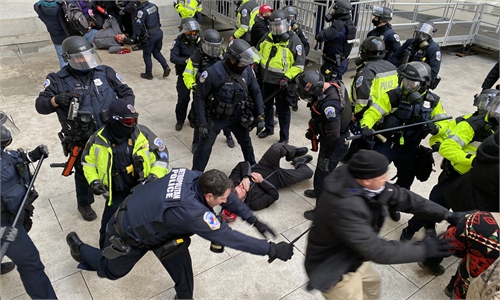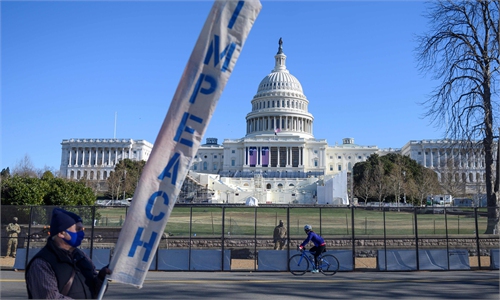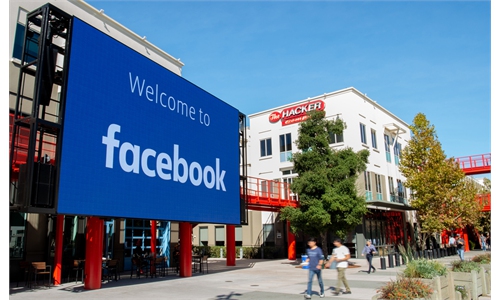
Security forces respond after the US President Donald Trump's supporters breached the US Capitol security in Washington DC, US on January 6, 2021. Pro-Trump rioters stormed the US Capitol as lawmakers were set to sign off Wednesday on President-elect Joe Biden's electoral victory in what was supposed to be a routine process headed to Inauguration Day. Photo: AFP
The January 6 Capitol riots in Washington has grabbed worldwide attention, including some former political leaders.Former Soviet leader Mikhail Gorbachev said on January 7 in an interview with Interfax, a Moscow-based news agency, that the events called into question the US' continued existence as a nation. David Miliband, a former foreign secretary of the UK, said on Sunday in his article published in The Daily Mail that the US is encountering the danger of "Balkanization," a term used to portray the breakup of the Balkans into a fragmented set of tribes united only by geography and loathing of each other.
Even though it remains to be seen whether the concerns of both Gorbachev and Miliband will turn out to be true, their views signal the international community's concerns over the current situation and the future of the US. Washington is regarded as the leader of the Western world, as well as the "beacon of democracy." The Capitol riots have significantly shocked Western countries, making them frustrated about the US.
Miliband said the Capitol riots were not a "thunderbolt from a clear blue sky." Instead, "they were years in fermentation, during which the demonization of opponents, their motives and their beliefs, became a staple of far-right demagogues."
The US seems not the country it used to be, and what happened on Capitol Hill is just its embodiment. This is because of the deep divisions, in terms of politics, society and race. With the decline of the number of white Americans and rise of other races, racial tensions are becoming more acute. As the minority holds the majority of the wealth and the middle class is shrinking, the widening wealth gap has been escalating social divisions.
Despite grave social divisions and class antagonism, they may not lead to a civil war or disintegration of the country in the near future. After all, the US is a developed country with a complete legal system. It can guarantee overall social stability. However, in the long run, such divisions may exist for a long time, posing a hidden threat to the country's social stability, especially when it is triggered by certain incidents.
Gorbachev said that riots are not the main thing, and their task is clear, but only at first glance. Not everything is so simple. The former Soviet Union was also a multi-ethnic country. As the government could not effectively coordinate diverse interests and values of different ethnic groups, the Soviet Union fell apart. Gorbachev witnessed the Soviet Union's disintegration as its top leader. Although this was the result he might be reluctant to see, there was nothing he could have done to prevent it. He felt the pain of a country's disintegration, and he has a profound understanding of the signals sent out and seen before the collapse of a country. In the face of what is happening in the US right now, Gorbachev's narrative reflects his prior experience.
Though the Capitol riots lasted only hours, and was tackled in a short time, just as Miliband said, "The quelling of the riot in Washington does not mean the crisis is over. Even if the run-up to the inauguration is peaceful, the fires of hatred have not been doused." The lower class of Americans and extreme white supremacists may forge a strong political force. Under the incitement of President Donald Trump and other political elites, their collective moves will produce more destructive results. Once such a force gathers, it will pose a remarkable challenge to US society and the political system of the US and may bring about a fresh round of turbulence.
The author is founding director of the Center for Strategic and Peace Studies at the China Foreign Affairs University. opinion@globaltimes.com.cn



